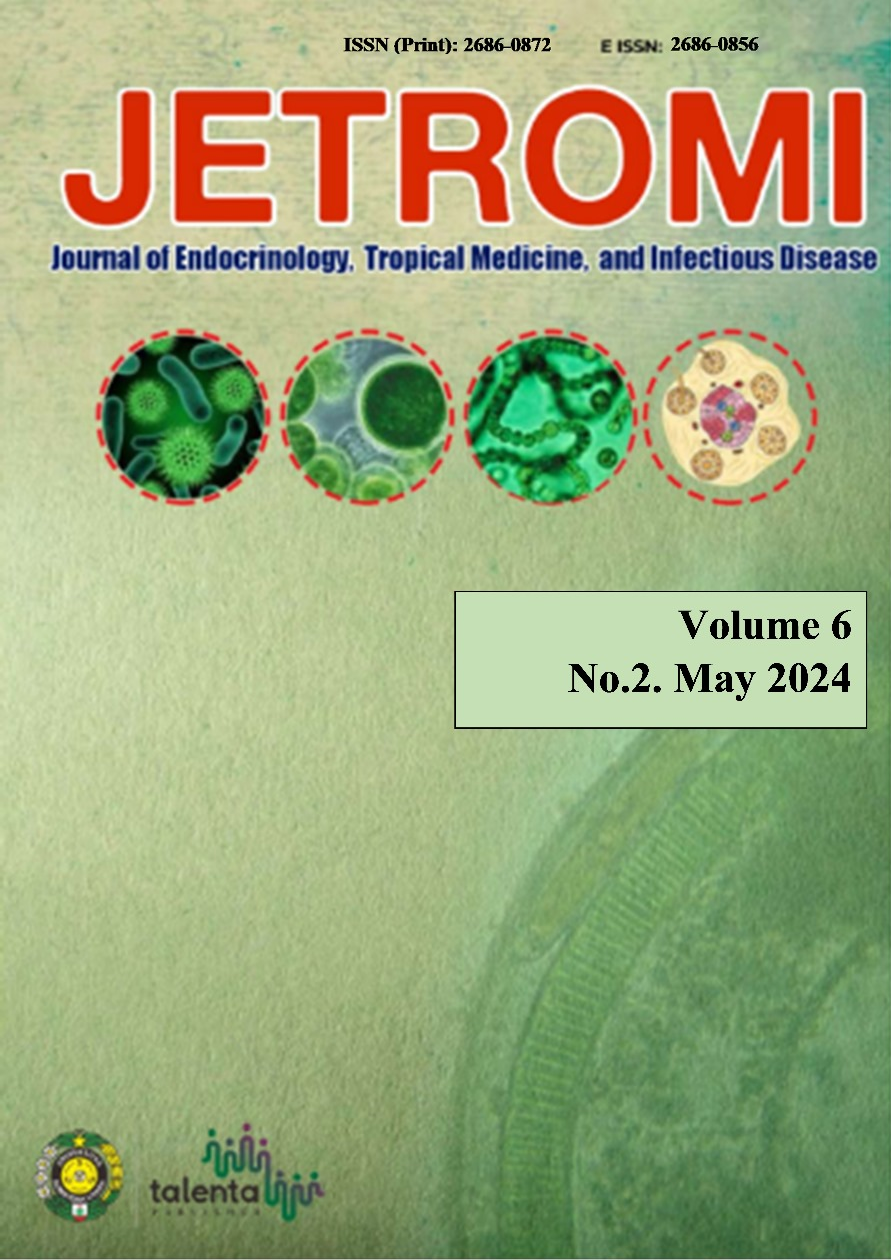Relationship between Personal Protective Equipment (PPE) Use Behavior and Working Period with Allergic Contact Dermatitis (ACD) Symptoms in Workers at Mabar Shrimp Factory
DOI:
https://doi.org/10.32734/jetromi.v6i2.14956Keywords:
Keywords: PPE, Behavior, Working Period, ACD Symptoms.Abstract
Background. Allergic contact dermatitis (ACD) is one of the most common occupational skin diseases after irritant contact dermatitis (ICD). One of the factors causing ACD is not using personal protective equipment (PPE) and a long working period. This study aimed to analyze the relationship between PPE use behavior and working period with ACD symptoms in workers at the Mabar shrimp factory, Medan.
Method. Cross-sectional research with a consecutive sampling method. Assessment of PPE use behavior and working period used a questionnaire and ACD symptoms by a doctor. The analysis used was univariate and bivariate analysis with chi-square.
Results. The total number of samples that met the inclusion and exclusion criteria of the study was 100 people, 28 people had symptoms of ACD, enough knowledge, good attitudes, and unfavorable actions with a working period of >2 years. Statistical analysis showed a relationship between PPE use behavior and working period with ACD symptoms.
Conclusion. All behavioral factors (knowledge, attitude, and action) and working period have a significant relationship with ACD symptoms
Downloads
Downloads
Published
Issue
Section
License
Copyright (c) 2024 Journal of Endocrinology, Tropical Medicine, and Infectious Disease (JETROMI)

This work is licensed under a Creative Commons Attribution-NonCommercial-ShareAlike 4.0 International License.
The Authors submitting a manuscript do so on the understanding that if accepted for publication, copyright of the article shall be assigned to Journal of Endocrinology, Tropical Medicine and Infectious Diseases (JETROMI).
Copyright encompasses exclusive rights to reproduce and deliver the article in all form and media. The reproduction of any part of this journal, its storage in databases and its transmission by any form or media, will be allowed only with a written permission from Journal of Endocrinology, Tropical Medicine and Infectious Diseases (JETROMI).








